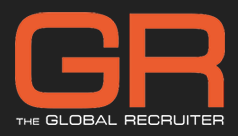For many recruitment agencies, advertising roles as “Inside IR35 – Umbrella Only” might seem like a straightforward way to help candidates understand how they will be paid. But there are important legal and regulatory risks that every recruiter should understand. But the good news is, it’s a simple fix!
What’s Wrong With “Inside IR35 – Umbrella Only”?
Maybe nothing, but probably everything! It all comes down to a widespread misunderstanding about what ‘Inside IR35’ really means. Inside IR35 ultimately means PAYE (tax deducted at source). But whether a role is Inside IR35 or Outside IR35 can only be determined once a Status Determination Statement (SDS) has been produced and then signed off by the client. No SDS, no IR35 determination. Without it, labelling a role as “Inside IR35” is misleading and non-compliant.
Legal Compliance: Regulation 13 & 27
Under the Conduct of Employment Agencies and Employment Businesses Regulations, specifically Regulation 13 and Regulation 27, misrepresenting a role’s employment status is unlawful and potentially even illegal.
- Regulation 13: Prohibits false or misleading information about a role’s terms and conditions.
- Regulation 27: Specifically covers the unlawful practice of misrepresenting employment status.
Advertising a role as “Inside IR35 ” without a formal Status Determination Statement (SDS) or the commitment to receive one from the client breaches these regulations. Advertising a role as “Inside IR35 – Umbrella Only” would be viewed as unlawful. This is not just a compliance risk, it can also trigger action from the Employment Agencies Standards Inspectorate (EASI).
But if there is an Inside SDS, Is That a Problem?
It’s no longer unlawful, but it is perhaps counterproductive. The “umbrella-only” label can unintentionally limit your access to highly skilled contractors. Many experienced professionals prefer to operate through their limited companies, even if a role falls Inside IR35. Restricting options may mean missing out on the talent your clients need most.
IR35 Should Not Be Intimidating. It’s an Opportunity to Attract More Candidates
If engaging with IR35 sounds scary, it really shouldn’t. Making the SDS is quite straightforward and can be undertaken by the recruitment agency, a third-party specialist or by the client themselves. Importantly, should HMRC subsequently identify any tax liability in the supply chain, they will usually hold the “Fee Payer” liable, and the “Fee Payer” is usually the party holding the SDS. So, if the client passes the SDS to an agency, who then pass the SDS to Kimson, it is Kimson who become the Fee Payer and who therefore hold the liability, not the client and not the recruitment agency.
If IR35 still sounds a little scary, as of April 2025 the umbrella reforms and the incoming Employment Rights Bill will create whole new issues where there is PAYE employment in the supply chain! Limited Company use for contractors rather than employment, will become more prevalent.
A Safer, Compliant Alternative
At Kimson Accountancy, we help recruitment agencies navigate IR35 in a fully compliant, contractor-friendly way. Using Deemed Employment (with us as the fee-payer) provides:
- Access to a wider pool of contractors who prefer to use their Ltd company
- Government-accredited compliance under the Off-Payroll rules (with SDS certification)
- Happier clients, more candidates, and increased profits
But Above All…
Advertising roles as “Inside IR35 – Umbrella Only” without an SDS is a breach of Regulation 13 and Regulation 27, making it unlawful. Staying compliant protects your agency from regulatory action, while giving contractors choice ensures you attract the best talent.
Compliance doesn’t have to limit your business—it can actually help you grow and build stronger client relationships. If you want guidance on staying fully compliant and competitive, we’re here to help.


